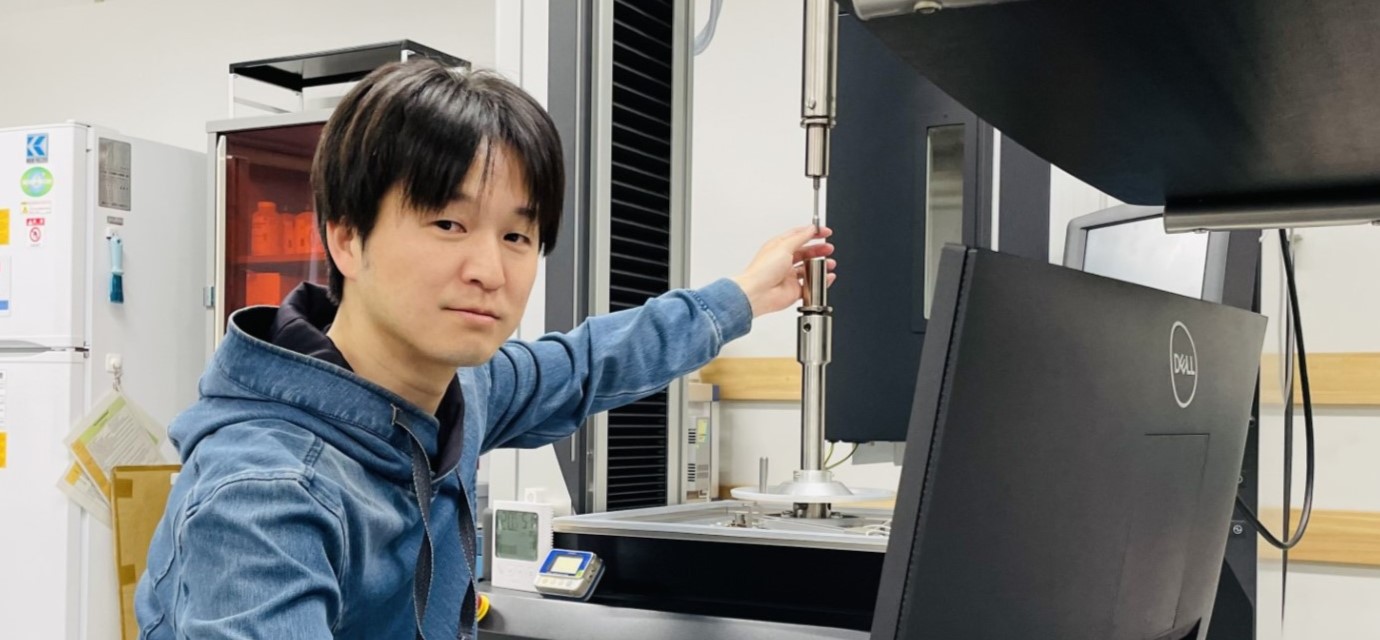Yuhei Ogawa
Researcher, Steel Research Group, Materials Evaluation Field, Research Center for Structural Materials
Hobbies
Driving my car, Looking after my pet Java sparrow
Favorite quotes
Do it promptly, do it surely, do it until it's done!
Future dreams
Having a cat or chinchilla as my pet
C.V. (As of September 2024)
Bachelor, School of Engineering, Kyushu University, 2014
Master, Graduate School of Engineering, Kyushu University, 2016
Doctor, Graduate School of Engineering, Kyushu University, 2019
Post Doctoral Researcher, AIST, Japan, April 2019 - March 2020
Assistant Professor, Departmenet of Mechanical Engineering, Kyushu University, March 2020- February 2023
Present Position, March 2023- ![]()
![]()
Q&A
Q:How did you recognize NIMS?
A:I spent my university years in the department of mechanical engineering. The first specialized lecture I took upon first entering the university was "Mechanics of Materials," given by a professor who was originally affiliated with NIMS. This initiated my interest in structural materials, and I recognized NIMS as a national research institute. Later, when I was in my fourth year at university, I had a chance to choose my laboratory. The professor of the laboratory I chose had recently transferred from NIMS to Kyushu University that year. Reflecting on these facts, I feel that I might have been destined to work at NIMS from those first moments.
Q:What research topic are you focusing on, and what is its significance?
A:I am studying hydrogen-induced changes in strength and deformation properties in a type of steel known as "austenitic steel." Although hydrogen is attracting attention as a clean energy source, unfortunately, it is harmful to the mechanical strength of structural steels, the materials essential for our daily lives and industries. The dissolution of hydrogen atoms into these steels, even with a Fe/H atomic fraction of a few tens of thousands, can make them weak and brittle. However, I recently discovered an epoch-making steel, in which the addition of a large amount of hydrogen surprisingly improves both strength and ductility. Based on this new discovery, I am working daily on material creation, experiments, and analysis regarding the diversion of hydrogen from a harmful agent to a beneficial alloying element.
Q:What is the attraction of working at NIMS?
A:In my case, I worked as an assistant professor at Kyushu University for three years before moving to NIMS. Although now I have fewer opportunities to enjoy research with students, the speed of the process from research planning to output has become much faster because I am no longer burdened with the work of education and lectures. I have access to a wide range of sophisticated and cutting-edge research equipment, and I receive careful support from dedicated technicians, which is a great help to me. When attempting to delve more deeply into any research topics, we inevitably encounter obstacles that are challenging to overcome by our own skills and knowledge alone. In this respect, NIMS—where researchers who are at the frontier of various fields in materials science gather under one roof—is truly a treasury of wisdom for a young scientist like me. If I visit neighboring rooms or buildings, I can easily have in-depth discussions with experts in different fields. This closeness between researchers is, in my opinion, the greatest attraction of NIMS.
Q:How did you feel when you moved to Tsukuba City?
A:Having never lived outside of Kyushu before, I felt quite apprehensive regarding many aspects, such as climate, cost of living, food, etc. The same was true for my wife, who is also from Nagasaki on Kyushu Island. I was particularly surprised at how early the sun sets in Tsukuba City. In Kyushu, even in winter, it is light until after 17:00. But in Tsukuba, it starts to get dark just after 16:00. It took me some time to get used to this gap. Once I got used to it, I really liked the city because the cityscape is modern and beautiful, and there are many good places and restaurants. As a researcher, I must travel overseas every year for academic conferences. From Tsukuba, I can easily access international airports Haneda or Narita by train or bus. This is very convenient as compared to when I lived in Kyushu.
Q:What is the fascination of working as a researcher?
A:Actually, I did not originally intend to become a researcher; I was thinking that I would go into the work force as usual after graduating from university. It was during my master's degree program that I started to feel that "it would be regrettable to leave my research to someone else after I graduated." If you find something that makes you passionate and you feel strongly that "I cannot leave this matter to someone else; I must do it myself," I hope you will cherish such a feeling. If you are capable of having such a feeling, you may be suited to the work of a researcher. When you work as a researcher, your interests directly become your work. Subsequently, the results of your work are recognized worldwide through scientific articles, which are passed on to future generations as your legacy. I would be happy if some students who read this letter empathize with my statements and decide they would like to become researchers in the future.
